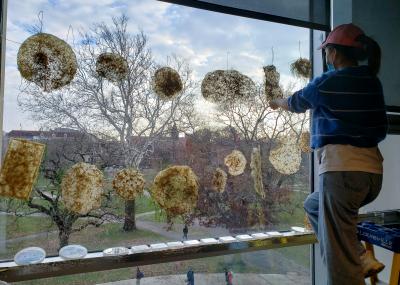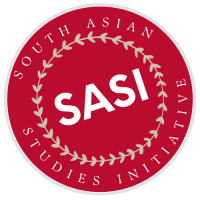Working groups have a long history in the Humanities Institute. Over the past two decades, they have provided a forum within which emergent and potentially exciting interdisciplinary research might find its initial hearing. This listing of current working groups does much of the same work to foster collaborative engagement with people across the university, addressing pressing questions, concerns, and themes in the Humanities today.
The Feminist STS and Social Justice Working Group aims to function as a “hub” for bringing together participants from the Arts, Humanities, the Social Sciences and STEM fields at OSU to collaborate on research, writing, and teaching across shared interests in feminist STS and social justice. Feminist STS (fSTS) is a growing interdisciplinary field that seeks to understand the ways in which systems of power (like race, ethnicity, gender, sexuality, disability, colonialism, and racial capitalism) shape, and are shaped by, the relationships between science, technology, and society, and the ways in which these relationships have long been coproduced in relation to social justice movements and activism. The goal of the Feminist STS and Social Justice Working Group is to foster a space at OSU where critical, creative, and collaborative engagement with fSTS and social justice can develop and coalesce.
To join us, or for other questions regarding this group, please contact Maya Cruz.
Feminist Science and Technology Studies Working Group:
Maya Cruz (Comparative Studies)
Liliana Gil (Comparative Studies)
Nick Kawa (Anthropology)
Maurice Stevens (Comparative Studies; The STEAM Factory)
Charlene Brenner (The STEAM Factory)
Becky Mansfield (Geography)
Margaret Price (English)
Erin Moore (Anthropology)

The goals of the Living Art Eco Lab Working Group are to conceptualize and create the most relevant and innovative living art/eco physical lab and intellectual hub possible at the intersections of art, ecology, biology, and sustainability, among other fields. We envision a Living Art/Eco Lab as a creative place to engage with the beauty and intelligence of non-human life. Sensory exhibits, technological interfaces, collaborative workshops, and visiting scholars will bring attention to - and nurture respect for - the living things we rely upon. Together we will explore the interrelationships between art, science, nature, culture, and health.
For questions regarding this group, please contact Amy Youngs.
Living Art Eco Lab Working Group
Lori Espisito (Arts Administration, Education and Policy)
Dominique Gedankeflaksberg (Design)
Dionne Lee (Art and Women's, Gender and Sexuality Studies)
Laura Lisbon (Chair, Department of Art)
Susan Melsop (Design)
Jenifer Owens-Morrison (Art)
Tracy Szatan (Art)
Amy Youngs (Associate Professor, Art)

The South Asian Studies Initiative at Ohio State is a vibrant and growing program, connecting students and faculty across departments who are interested in the study of South Asian languages, history, art, culture, society and politics.
An undergraduate minor in South Asian Studies and a Graduate Interdisciplinary Specialization in South Asian Studies is currently offered by Near Eastern and South Asian Languages and Cultures.
In addition, the South Asian Studies Initiative faculty, along with graduate students, plan events with guest speakers, Brown Bag lunches, and conferences in order to bring greater visibility to South Asian Studies and build community.
If you are interested in learning more, please contact director of the South Asian Studies Initiative Dr. Madhumita Dutta, or visit the South Asian Studies Facebook Page.
South Asian Studies Initiative Working Group
Amrita Dhar, Assistant Professor, English
Madhumita Dutta, Assistant Professor, Geography
Pranav Jani, Associate Professor, English
Brian Joseph, Professor, Linguistics & Slavic and East European Languages and Literatures
Ila Nagar, Associate Professor, Near Eastern Languages and Literature
Binaya Subedi, Assistant Dean, & Associate Professor, Education (Newark)
Hugh Urban, Professor, Comparative Studies
Scott Levi, Professor, History
Mytheli Sreenivas, Professor, History and Women's, Gender and Sexuality Studies
Rasel Ahmed, Assistant Professor, Theater, Film and Media Studies
Lydia Walker, Assistant Professor, History
Statement Condemning the FedEx Indianapolis Shooting, 4/15/2021
Asian American Studies Program & South Asian Studies Initiative at Ohio State
April 2021
The Asian American Studies Program and the South Asian Studies Initiative at Ohio State categorically condemns the mass shooting that occurred at the FedEx facility in Indianapolis on April 15, 2021, which took the lives of eight people—including four Sikh Americans—and injured several others.
This massacre is unfortunately just one in a series of recent, high-profile incidents involving mass gun violence and lethal police force perpetrated against Asian Americans, African Americans, and Latinx people. Since the Atlanta area spa shootings on March 16 in which six Asian American women and two others were killed by a single gunman:
- Daunte Wright (20) was shot and killed by a police officer in Brooklyn Center, Minnesota, on April 11, just miles away from where Derek Chauvin was on trial for the murder of George Floyd;
- Adam Toledo (13) was shot and killed by a police officer in Chicago on March 29, the body cam footage released on April 15 showing Toledo’s hands in the air;
- Ma'Khia Bryant (16) was shot and killed by Columbus police a mere half hour before the guilty verdicts were read in the Chauvin trial on April 20;
- Andrew Brown, Jr. (42) was shot and killed by county deputies in Elizabeth City, NC, on April 21.
Acknowledging the complex and intertwined nature of these violent events requires situating them within the daily and unrelenting assaults of white supremacy. It also means refusing that ideology’s divide-and-conquer tactics of deeming one set of victims “innocent” and another “guilty-until-proven-innocent”—presumptions that too often fall along Asian vs. Black, Latinx, and Indigenous lines.
Even from within the highly diverse and stratified “Asian American” population itself, the Indianapolis atrocity has received far less attention compared to the Atlanta spa shootings. To be sure, the FedEx shooter turned the gun on himself, so “we may never know for sure what drove him to do what he did,” as the Sikh Coalition states in a press release:
We do know, however, that the FedEx facility he targeted was well known for having a large Sikh workforce. Given everything our community has experienced in the past—the pattern of violence, bigotry, and backlash we have faced—it is impossible not to feel that same pain and targeting in this moment.
Sikhs have resided and established communities in the U.S. since the 1890s and have faced discrimination since then. But the most recent “pattern of violence” refers to the deadly “backlash” and everyday profiling and harassment that Sikh Americans have experienced in the wake of 9/11/2001. The most extreme act of violence took place at a Gurdwara in Oak Creek, Wisconsin, on August 5, 2012, in which six worshipers were shot and killed by a self-identified white supremacist.
As activists in Columbus and around the country protest the death of Ma’Khia Bryant and too many others, we continue to stand in solidarity with the Sikh American community and all those affected by the recent upsurge in mass gun violence and police killings.
